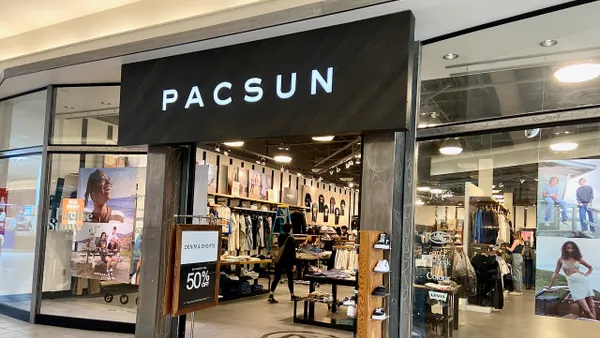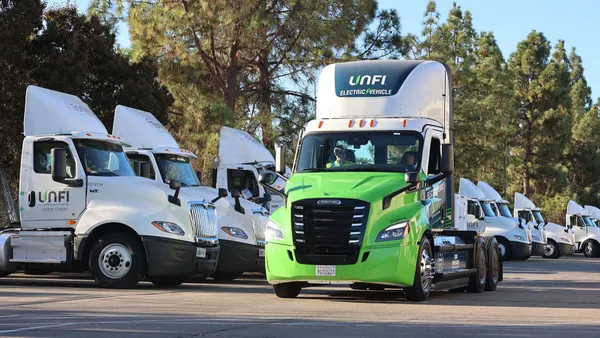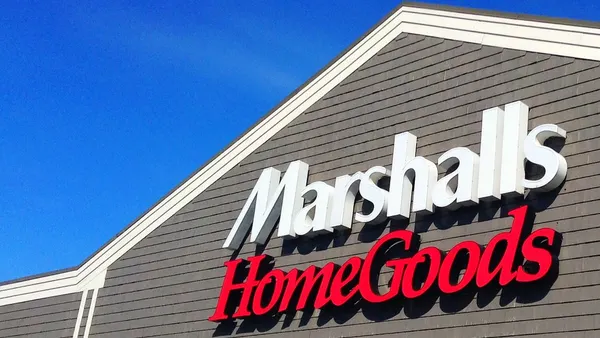Dive Brief:
-
Kellogg is working with suppliers to phase out glyphosate, the active ingredient in Monsanto's Roundup weed killer, as a pre-harvest drying agent on wheat and oats by the end of 2025, according to its Open For Breakfast website. Kellogg noted the practice is not widespread in its global supply chains, including the U.S., where using glyphosate for this measure has not been approved.
-
As You Sow, a consumer advocacy group, filed shareholder resolutions in 2017 and 2020 asking the company to eliminate producer application of glyphosate before harvesting grains. The group said in a release it hoped other food producers would do the same.
-
In a separate announcement, the U.S. Environmental Protection Agency said there are no unreasonable adverse effects on human health or the environment when glyphosate is used as directed. The agency filed its interim registration review decision Jan. 31. It was published in the Federal Register Feb. 3.
Dive Insight:
Residues of the widely used agricultural chemical have reportedly been found in Kellogg's Froot Loops, General Mills' Cheerios and Nature Valley granola bars, Ben & Jerry's ice cream, PepsiCo's Quaker Oats products, Tropicana orange juice and several beer and wine brands. Although detected amounts are typically below the EPA's tolerance levels of 0.1 to 310 parts per million depending on the crop, any trace of glyphosate in foods and beverages is likely to alarm consumers.
In addition to phasing out pre-harvest glyphosate use on wheat and oats, Kellogg announced it is working with suppliers to reduce chemicals on crops. A Kellogg spokesperson told Food Navigator the company also plans to expand its grower survey for better data collection on pesticide use and invest in new pesticide reduction techniques to benefit farmers and the environment.
At least one grower organization said it wasn't informed about the company's decision, according to The Washington Post. Caitlin Eannello, communications director for the National Association of Wheat Growers, told the newspaper the group was trying to figure out what it means.
"Glyphosate is very safe, and there's no real alternative. If it were to be totally eradicated, producers would probably stop growing. [Kellogg's] made an announcement without talking to us," she said. Eannello added that pre-harvest application occurs on 3% or less of total U.S. wheat acres, and that it kills weeds but isn't absorbed by the wheat.
Many consumers don't want chemical residues in their food, so the more studies and lawsuits that appear about glyphosate, the more they're likely to seek out and purchase "free-from" products that many consider to be healthier. There also are "non-glyphosate" certifications brands can apply and be tested for, and if the levels are found to be low enough, the products can carry the label.
While the EPA's announcement may ease worries about glyphosate among consumers and food makers, there's no consensus on its relative safety. The World Health Organization has called glyphosate "probably carcinogen[ic] to humans," and California lists it as a chemical "known to the state to cause cancer." Monsanto challenged that listing but lost the fight in 2018 when the California Supreme Court refused to hear its appeal.
It may cost more to find wheat and oats that haven't been sprayed with Roundup, possibly resulting in higher retail prices, but it might be worth it if consumers respond positively and search out glyphosate-free products. Similar to other cereal makers, Kellogg has seen sales slip in recent years, so this move could boost its reputation and encourage other companies to reduce their use of glyphosate as well.














